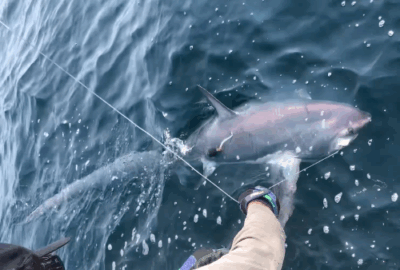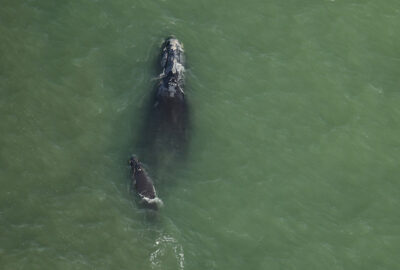Year in Review
Impact of New England Aquarium Work
By New England Aquarium on Tuesday, March 02, 2021


By John Shakespear
Faced with 2020’s unprecedented challenges, the New England Aquarium collaborated with hundreds of dedicated visitors, aquarists, volunteers, teachers, legislators, students, fishermen, and partners to find new ways to celebrate and protect our blue planet through the pandemic.
Educating and Inspiring from Afar
During two periods when COVID-19 forced us to temporarily close the Aquarium’s doors to the public, our aquarists and trainers continued to look after the more than 20,000 animals in our care, and our educators created innovative ways for visitors and students to stay connected and continue learning.
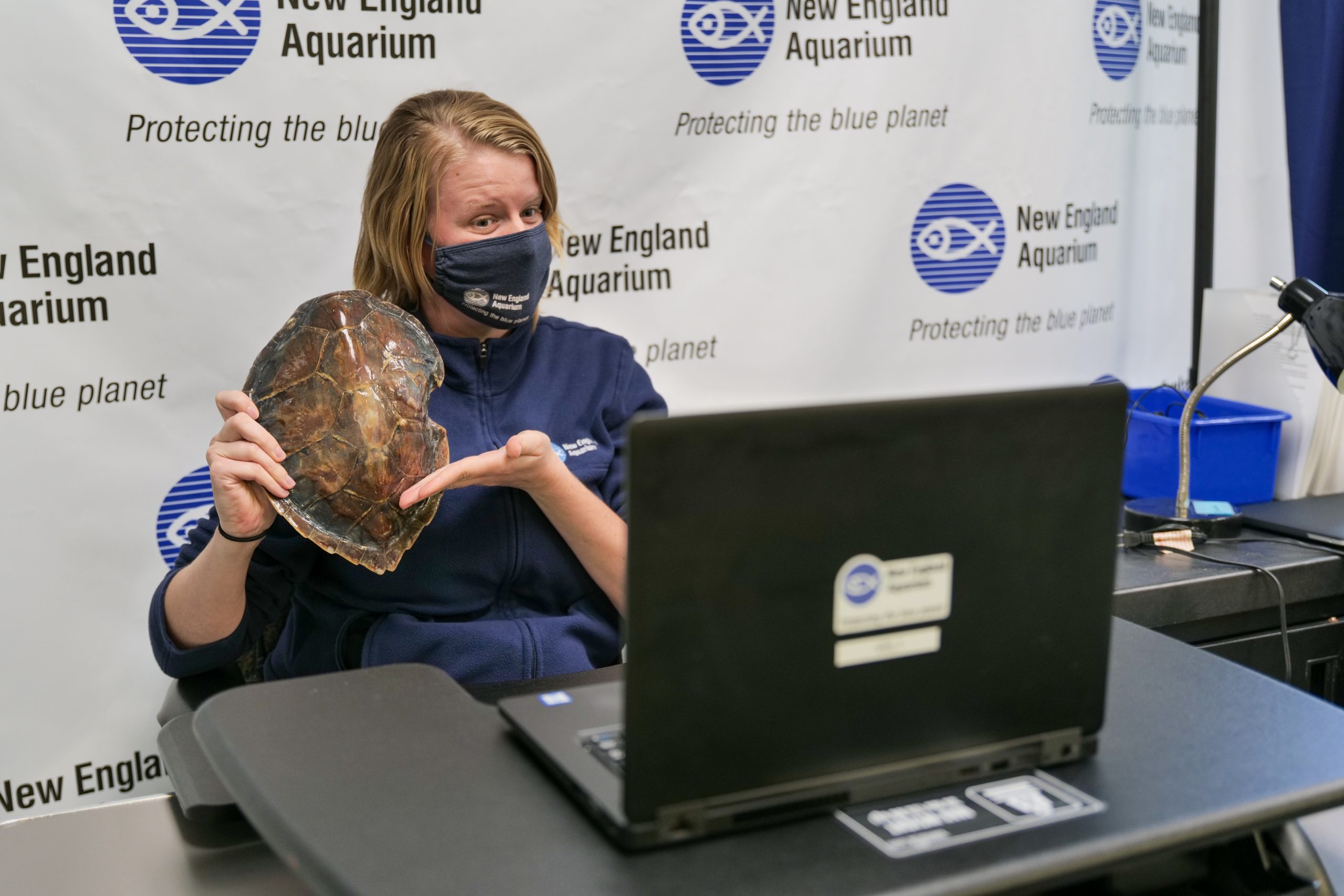
Virtual Visits
Since the pandemic began in March, we have released 225 videos on our social media and YouTube channels that offer a window into our ongoing animal care, research, and rescue efforts. The videos are free and accessible to all online.
Virtual Animal Encounters
Through our Zoom-based Virtual Animal Encounters, members of the public can now spend 30 minutes of up-close, quality time with sea lions and fur seals, harbor seals, our penguins, or the many Caribbean species who live in the Aquarium’s 200,000-gallon Giant Ocean Tank.
Virtual Academy Programs
During the pandemic, our educators are continuing their mission to help students learn about the blue planet through three new standards-aligned, Zoom-based ocean science courses for grades K-5. Students interact with staff and complete activities.
Reopening Safely
On July 16, the Aquarium reopened at 15% building capacity with new safety measures and procedures in place to ensure the safety of our visitors and staff. To ensure our long-term viability, we have had to make difficult cuts in budget and staff, but we have also become more adaptable, doing more with less to provide inspiring and engaging experiences for our visitors.
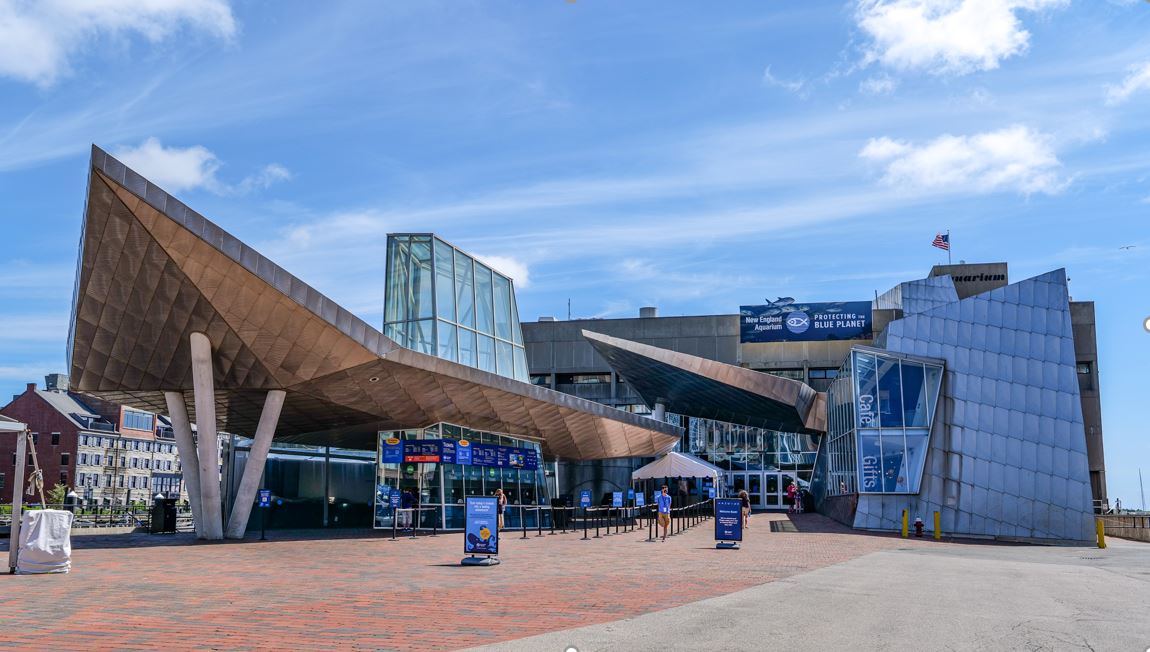
Innovating to Stay Healthy
To help ensure social distancing, the Aquarium introduced contactless entry and a new one-way guest flow through our exhibits. We have also implemented enhanced cleaning efforts, a mask requirement, and online reservations and timed ticketing.
New Visitor Opportunities
After reopening, we offered our premium members the opportunity to visit the Aquarium an hour before it opened to the public to see the animals in a new light. Starting in October, the Aquarium stayed open late on Friday nights to welcome families, working adults, and young adults for unique, safe Aquarium After Dark events, each with a different theme.
Welcoming Tatoosh
In September, the Aquarium’s Olympic Coast Sanctuary exhibit welcomed a new resident: a two-year-old, eight-pound giant Pacific octopus named Tatoosh. Thanks to his chameleon-like ability to change the color and texture of his skin, it’s no surprise that Tatoosh is blending right into our Northern Waters Gallery.
Rescue and Rehabilitation
In 2020, our rescue program saw the second-largest sea turtle stranding season in its history. Working within new COVID-related safety protocols that limited support from volunteers, the staff at our Animal Care Center in Quincy still managed to provide veterinary care to 569 cold-stunned sea turtles who were rescued by Mass Audubon patrols along the coast of Cape Cod.
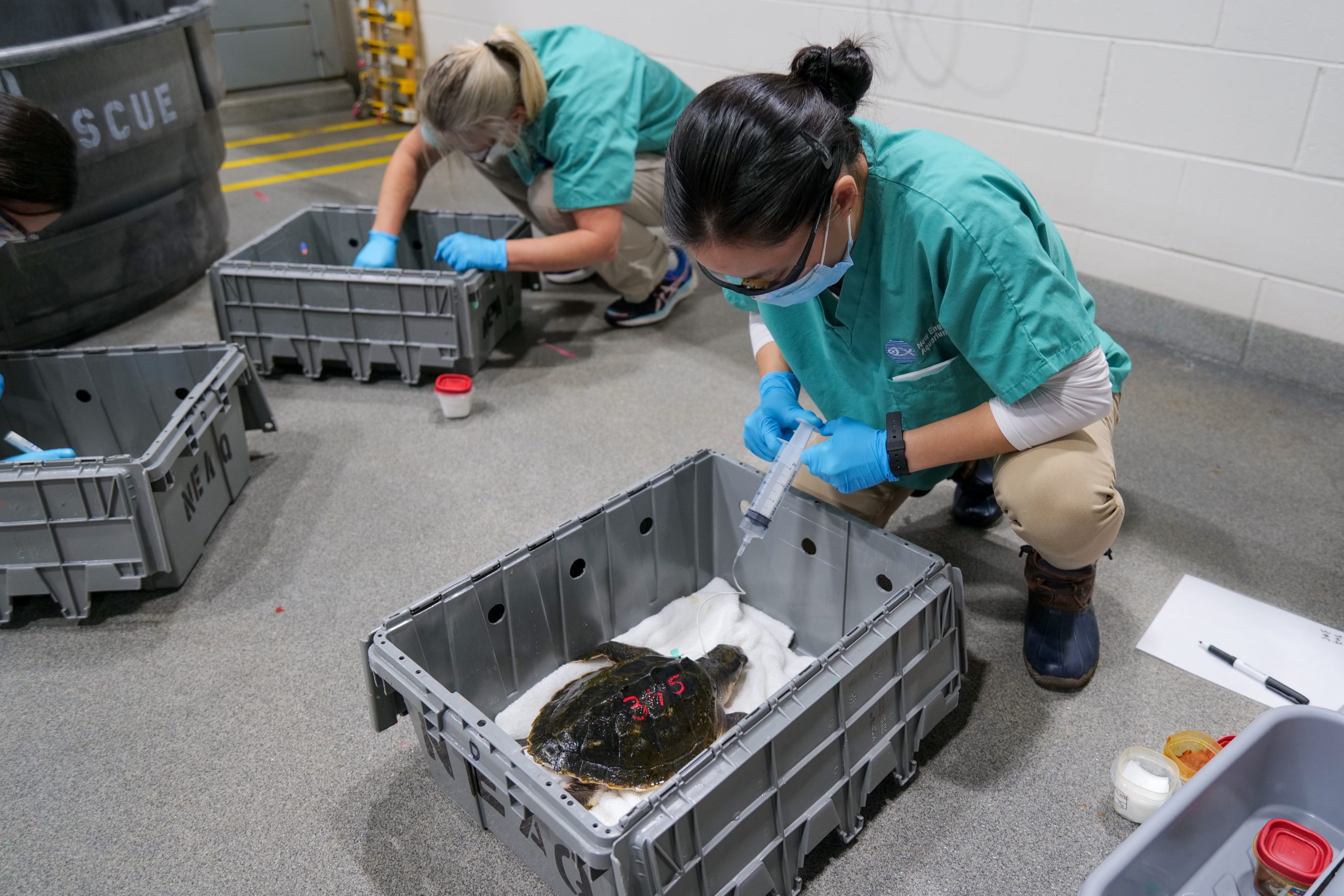
Focusing on Sea Turtles
In light of increased sea turtle strandings in Massachusetts, we have shifted our full rescue and rehabilitation efforts toward saving these turtles. On May 1, responsibility for responding to calls about stranded whales, dolphins, and whale species shifted to the regional office of the National Oceanic and Atmospheric Administration (NOAA).
Studying the Impacts of Turtle Transport
After six to eight months of rehabilitation at our facilities, sea turtles are often transported up to 24 hours to warmer southern waters to be released. The Aquarium partnered with six researchers to study the impacts of these trips on turtles’ health and stress levels.
A Thanksgiving Odyssey
Over Thanksgiving, a flight carrying 30 rescued Kemp’s ridley turtles to a rehab facility in Louisiana encountered strong winds and a propellor issue. After the plane landed in Chattanooga, TN, the Aquarium, NOAA Fisheries, and Turtles Fly Too quickly reached out to the Tennessee Aquarium, who graciously gave the turtles a place to stay the night. Thanks to these combined efforts, the turtles arrived safely in New Orleans before the holiday was over!
Research Forges Ahead
In spite of the pandemic, researchers at the New England Aquarium’s Anderson Cabot Center for Ocean Life authored or co-authored 33 papers published in peer-reviewed journals in 2020. In July, after a pause during the initial lockdown, fieldwork started back up again with new precautions in place. Our right whale research team quarantined as a family unit and headed north. One of our shark researchers towed a camper from Maine to Key West to maintain social distance. In a challenging year, our researchers were undaunted.
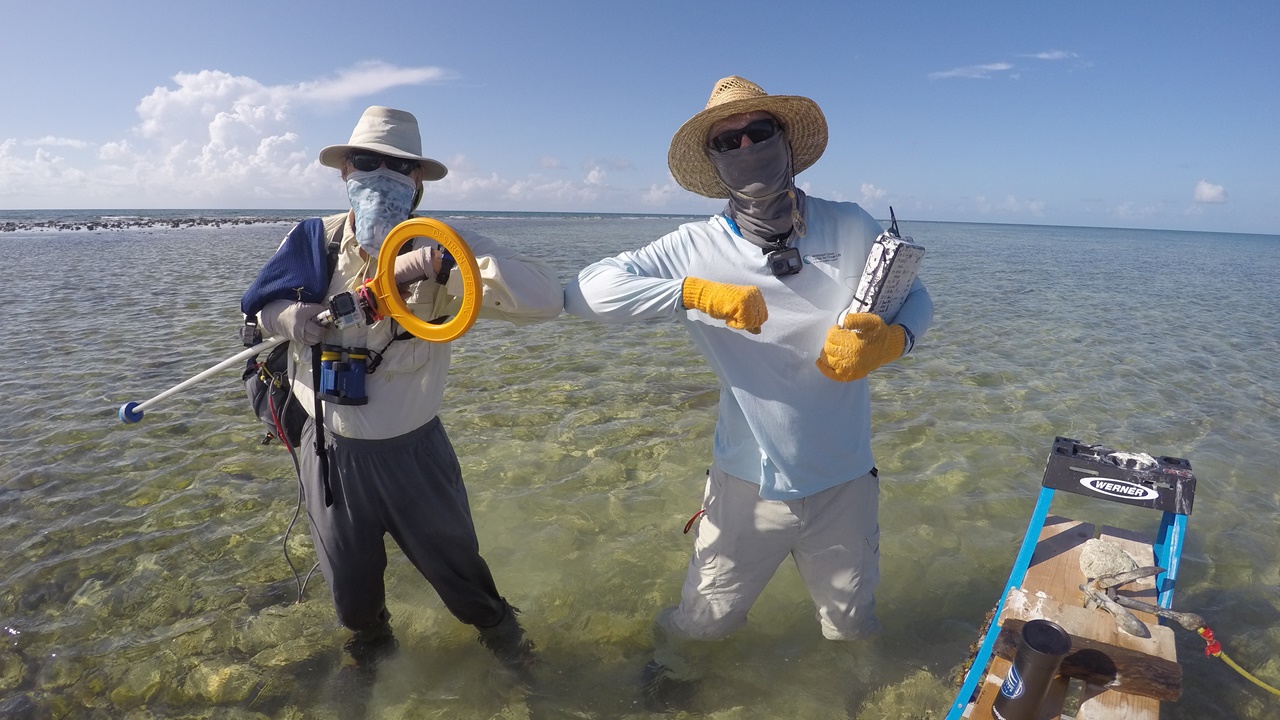
Aerial Surveys Spark Conservation Efforts
In August, our aerial survey team returned to the Northeast Canyons and Seamounts Marine National Monument after spotting two endangered blue whales there in February, and saw over 972 animals, including four whale sharks. Our aerial survey sightings of right whales also led to the creation of a Dynamic Management Area south of Martha’s Vineyard and the extension of the Area south of Nantucket, leading to reduced ship speeds and safer waters for the whales.
Fighting for Right Whales
For the first time in 40 years, Aquarium scientists did not see any North Atlantic right whales in the Gulf of Maine this summer. Six aerial sightings south of Cape Cod confirmed that warming waters are changing the endangered whales’ feeding habits. With only about 356 individuals left in the species, the Aquarium released a statement urging the U.S. and Canada to implement policies to curb deadly fishing gear entanglements and reduce ships’ speed. In March, researchers launched a refurbished North Atlantic Right Whale Catalog, which dates back to 1935.
Studying Shipping Patterns
Anderson Cabot Center Ecologist and Senior Scientist Dr. Jessica V. Redfern helmed a study on the impact of changing shipping patterns on whales in the Pacific. The team’s findings have implications for protecting of ocean life on both coasts, including North Atlantic right whales.
Conservation Wins
In addition to its role as a research hub, the Anderson Cabot Center advises local and national organizations and supports conservation efforts both at home and abroad.
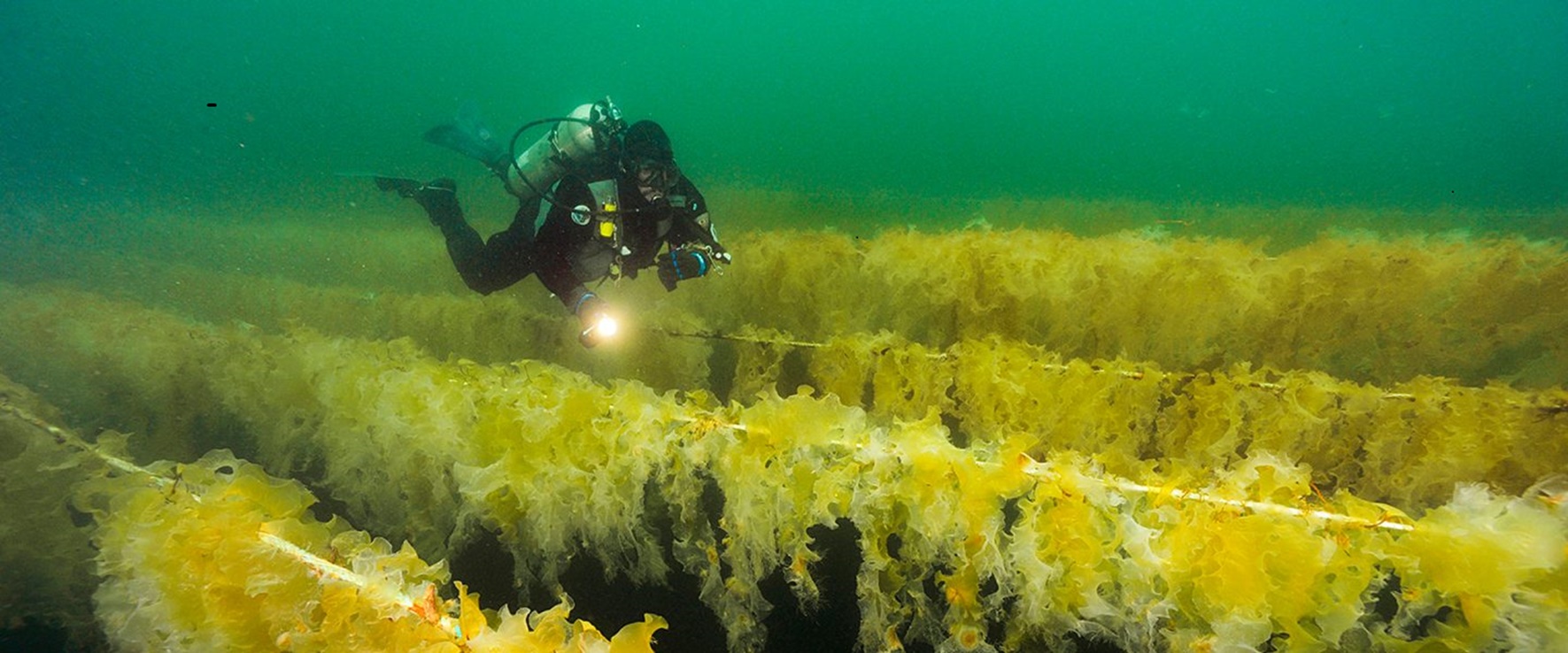
Supporting Ocean Leaders Through COVID-19
Our Marine Conservation Action Fund (MCAF) continued to support ocean conservation leaders around the globe, funding 12 projects across 11 countries in 2020. These awards helped protect threatened and endangered species, and seven were emergency grants to support MCAF Grantees and Fellows facing unprecedented challenges and funding shortages during the pandemic.
Informing Turtle Protection
Anderson Cabot Center data helped inform the recent decision by NOAA Fisheries, the U.S. Fish and Wildlife Service, and the National Marine Fisheries Service to maintain leatherback turtles’ endangered status under the Endangered Species Act, rejecting a petition to downgrade it.
A Seaweed Farming Solution
Comments from Anderson Cabot Center Scientists led New England Seafarms to change the proposed stocking date for their seaweed farm from October 1 to November 1 each year, which could lower the risk of sea turtle entanglements without hampering the farming operation.
Partnering for Impact
This year, the New England Aquarium announced several new partnerships with local and national organizations to protect the blue planet and support startups that are working to promote ocean sustainability and green energy solutions.
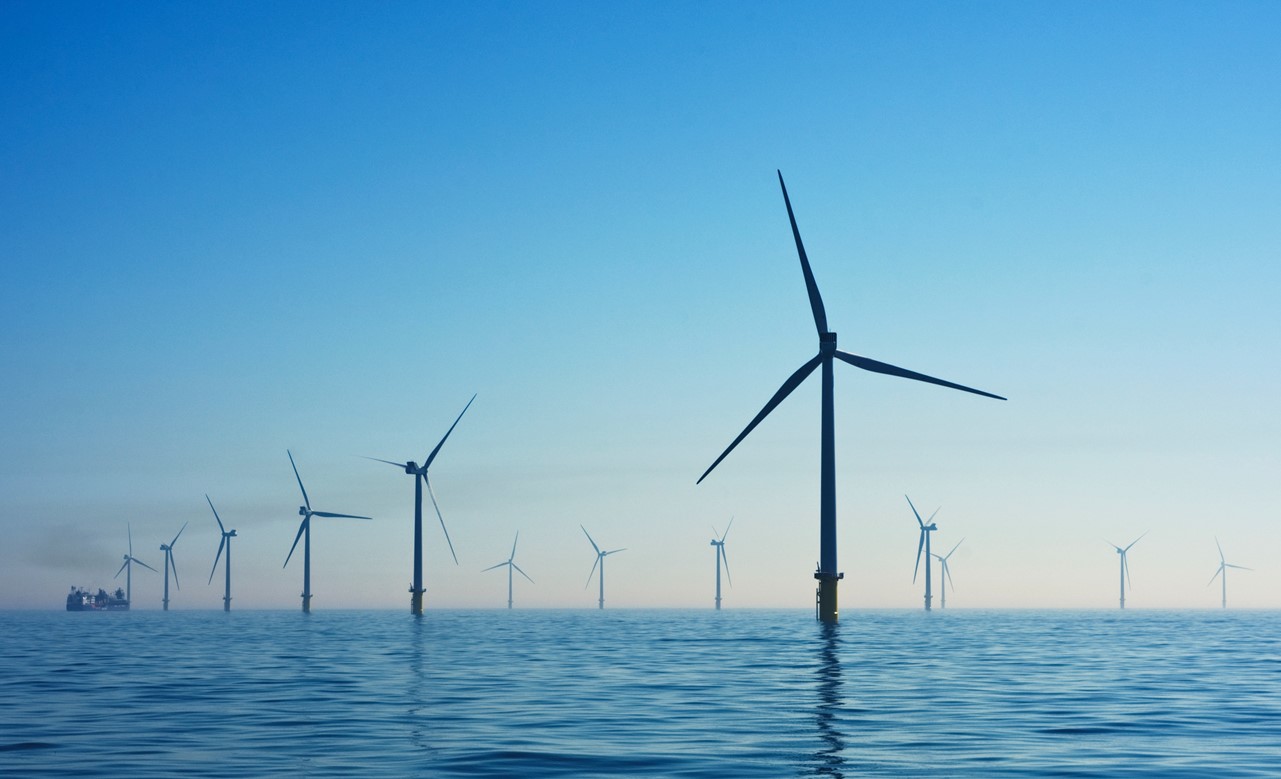
Protecting Turtles from Trafficking
The Aquarium and Zoo New England joined animal care specialists, wildlife agencies, and law enforcement across the U.S. in Saving Animals from Extinction (SAFE), a national Association of Zoos and Animals program focused on protecting native turtles from illegal wildlife traders.
New England’s First Bluetech Incubator
In June, the Aquarium and bluetech startup platform SeaAhead launched the BlueSwell Incubator Program, the region’s first incubator dedicated to supporting startups with potential to significantly impact ocean sustainability and global resilience. BlueSwell’s first six startups, selected in October, each received a $35,000 grant and 20 weeks of mentorship.
Supporting Sustainable Offshore Wind
Through the Offshore Wind Challenge, we are partnering with Greentown Labs, North America’s largest climatetech incubator, and Vineyard Wind, developer of the first utility-scale offshore wind energy facility in the U.S., to guide three challenge-winning startups as they support the responsible development of the offshore wind industry off the Massachusetts coast and beyond.
Advocacy
As a steward of Boston’s Central Wharf for more than 50 years, the Aquarium is helping lead a city-wide conservation effort to ensure a climate resilient, accessible, and inclusive waterfront that will continue to be a welcoming and enjoyable public space for generations to come.
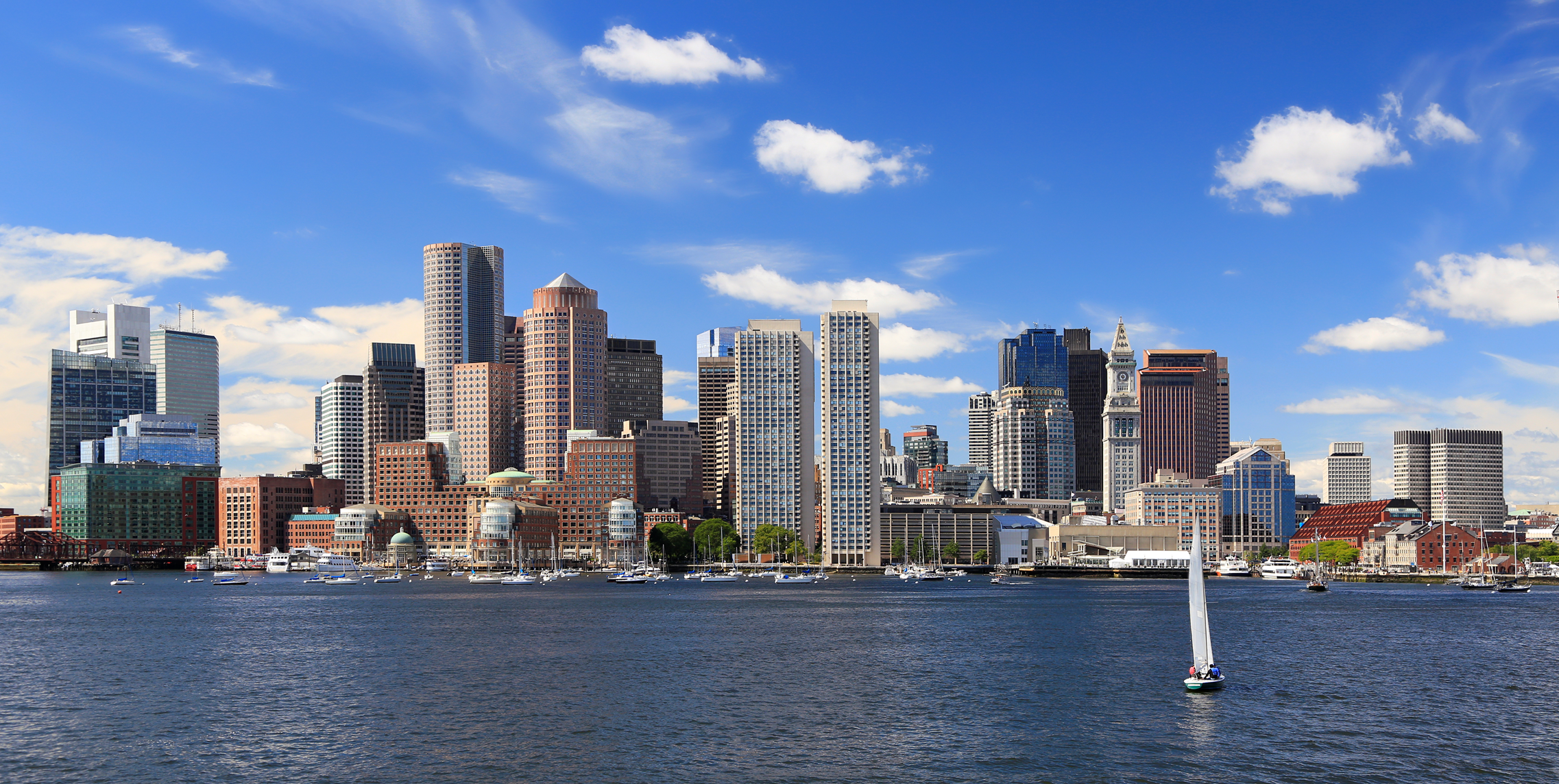
Joining Forces Against Plastic Pollution
The New England Aquarium joined 15 other U.S. Aquariums in support of the Break From Plastic Pollution Act, a proposed federal bill that would ban certain single-use plastics and require producers of plastic products to create and finance waste and recycling programs.
Opposing the Harbor Garage Development
In February, Aquarium President and CEO Vikki N. Spruill spoke out against a proposed 600-foot skyscraper that would dramatically alter the waterfront public space without incorporating climate, inclusivity, or accessibility concerns into its development plan.
Fighting for the Monument
After the Trump administration rolled back protections for the Northeast Canyons and Seamounts Marine National Monument, the Aquarium launched a public letter-writing campaign to fight for the biodiverse region off the Massachusetts coast. On President Biden’s first day in January, he immediately initiated steps to restore protection to the Monument and other national treasures.


